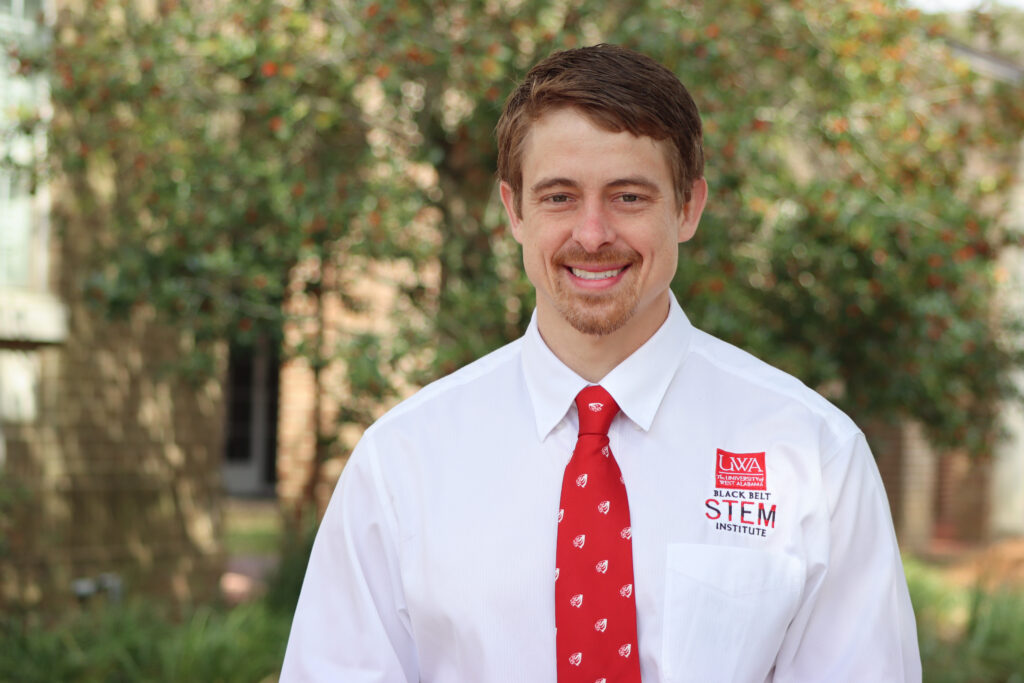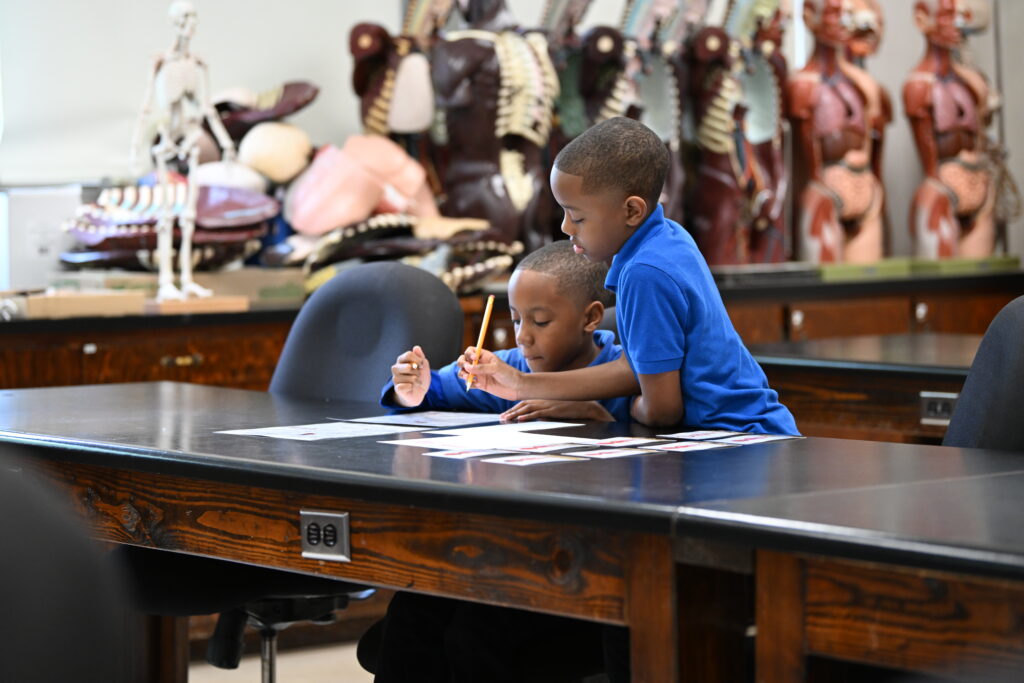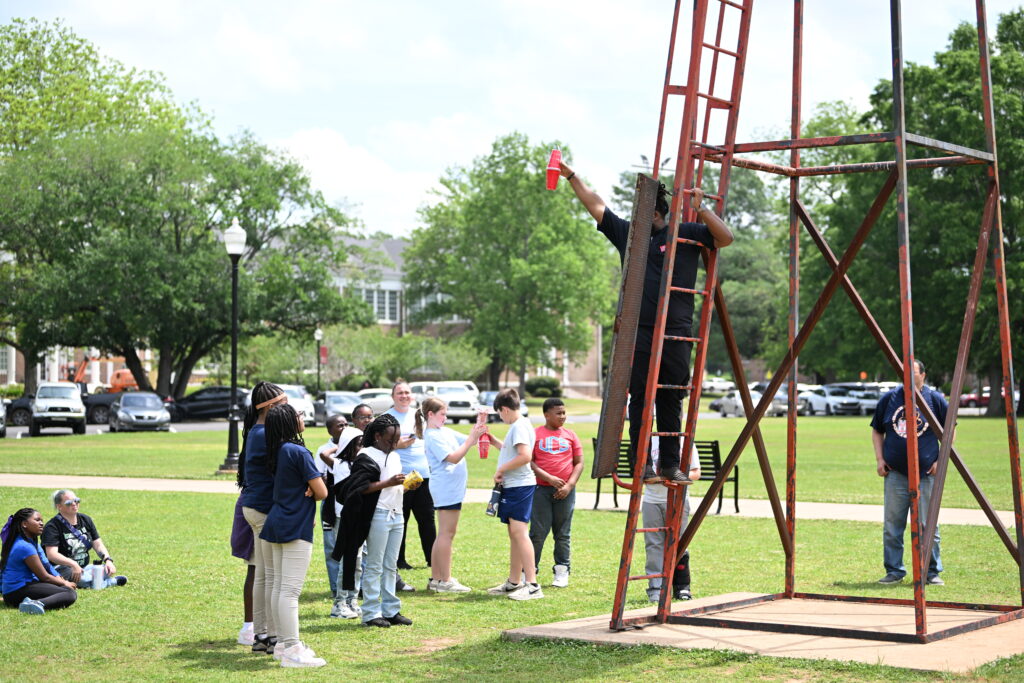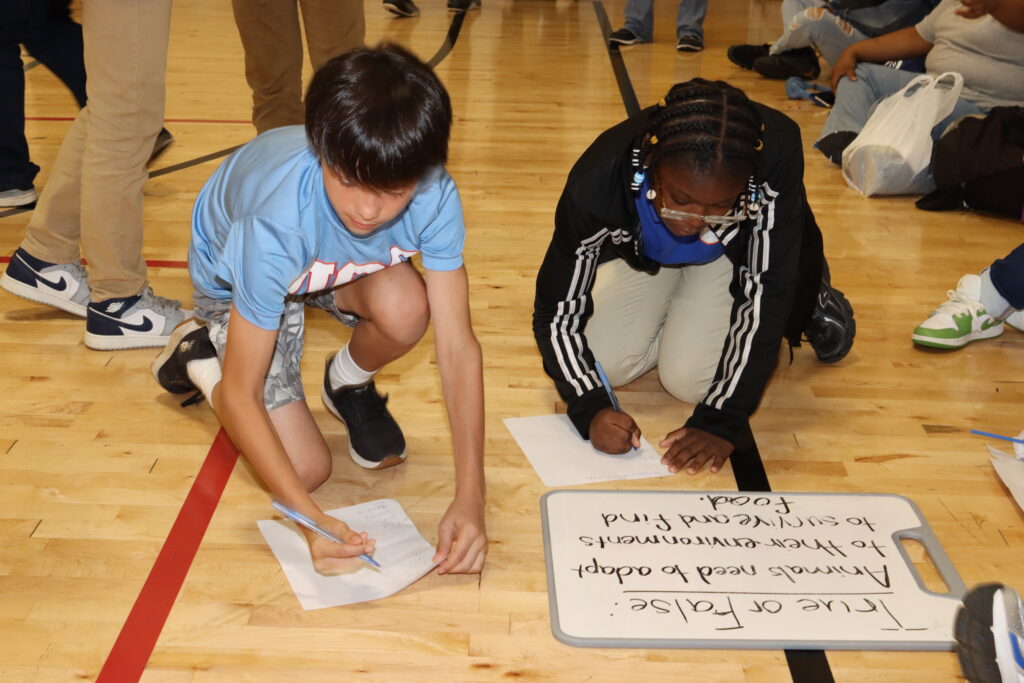
Story: Lisa Sollie | Photo: Cody Ingram
How UWA is reimagining STEM education in Alabama’s Black Belt
Picture a track meet, but for science. That’s how Chet Nicklas describes the energy of Science Olympiad, a fast paced, team-based competition that returned to the University of West Alabama this year after more than a decade.
As director of UWA’s Black Belt STEM Institute since 2022, Nicklas has been leading efforts to expand STEM opportunities across some of Alabama’s most underserved communities. His mission: to equip teachers, inspire students, and build long-term capacity in rural school districts.
His work is gaining national recognition. In 2025, he was named one of Education Technology Insights’ Top 10 STEM Directors. His goal is to be the go-to person when schools need STEM support. “Whether that’s answering questions, attending local events, or helping a teacher get a robotics team off the ground, showing up consistently makes a difference,” says Nicklas.
A two-time UWA graduate (2011, 2021) Nicklas has deep ties to the university, and his mother, sister, and aunt are also alumni. Although he grew up in Meridian, Mississippi, the former science teacher spent much of his time in Livingston with his maternal grandparents, so he has firsthand insight into the challenges facing schools in the region.
Building Foundations: Supporting Teachers First
At the heart of the Black Belt STEM Institute’s mission is professional development—helping math and science teachers strengthen their content knowledge and instructional strategies. Much of this is delivered through UWA’s affiliation with the Alabama Math, Science, and Technology Initiative. (AMSTI)
“Teachers can earn additional pay while learning STEM strategies they can apply immediately in the classroom,” Nicklas explains. “That’s especially important in rural areas, where recruiting and retaining qualified STEM educators remains a major challenge.”
Beyond AMSTI, the Institute supports educators by partnering with organizations like BetaBox and the National Science Teachers Association to provide hands-on training and build district-wide capacity. Collaborations with Teton Science Schools and We Build It Better introduce place-based and workforce-aligned approaches that connect classroom learning to real-world applications.
The Institute’s reach extends beyond teachers. Nicklas coordinates summer STEM camps and organizes student visits to UWA’s campus, often their first time setting foot on a college campus. These visits include hands-on STEM activities designed to spark interest in science, technology, engineering, and math.
With support from the Institute, 22 robotics teams have launched in the region over the past three years. Participating schools receive specialized training, equipment, and access to experts in VEX Robotics and the Southeastern Center for Robotics Education, an Auburn University outreach center designed to more effectively develop and deliver robotics education to K-12 students and teachers.
Community events such as STEM days, technology expos, and career fairs also help students see what’s possible, and help connect local industries with the next generation of STEM professionals.
Science Olympiad Returns
In March 2025, UWA hosted a Division AA Regional Science Olympiad tournament for the first time in more than a decade, bringing new energy and visibility to STEM education in the Black Belt.
“It’s high-energy and hands-on,” Nicklas says. “Students are literally sprinting between classrooms and labs, solving problems and building skills in science, technology, engineering, and math,” says Nicklas. “It’s learning in motion.”
Founded in 1984, Science Olympiad is the nation’s premier team-based STEM competition, challenging more than 6,600 teams in elementary, middle school, and high school across all 50 states.
This year’s tournament brought together 80 students from four schools across third through sixth grades. For most, it was their first time competing.



One teacher, Ms. Betty Lucky from Frances Marion School in Marion, Alabama commented that the Science Olympiad program, “enriched my students’ learning by fostering critical thinking, problem-solving, and teamwork skills. Through hands-on challenges, they have deepened their understanding of science, applied concepts to real-world situations, and gained confidence in their abilities. This experience has increased their engagement in STEM, inspired career interests, and strengthened both academic and leadership skills.”
In June, the Institute hosted a regional Science Olympiad training for 16 educators from 12 school districts. Led by Mary Lou Ewald, Alabama’s state director of Science Olympiad and director of STEM outreach at Auburn University, the training aimed to expand access across the state.
“Through this training, we explain the three types of events—content-based, build, and hybrid,” says Ewald. “We also provide both physical and knowledge-based tools so teachers can start Science Olympiad clubs at their schools and prepare students for future competitions.”
Looking Ahead
As the Institute grows, Nicklas is looking to strengthen partnership with local business and industry leaders, especially to expand robotic programs. Many smaller schools, he notes, struggle to compete with larger districts due to limited access to equipment and training.
“Additional funding and mentorship from the private sector could help level the playing field,” he says. “We want every student, no matter where they’re from, to have a chance to build, compete, and succeed.”
For Nicklas, progress starts with relationships. By showing up in classrooms, earning educator’s trust, and delivering real resources to schools, the Black Belt STEM Institute is reimagining what STEM education can look like in rural Alabama one student, one teacher, one robot at a time.